|
To see long excerpts from “On Extinction” at Google Books, click here.
|
“On Extinction: How We Became Estranged From Nature”
A book by Melanie Challenger
Melanie Challenger, deep into her book “On Extinction: How We Became Estranged From Nature,” hunkers down in the Arctic with Meeka, an Inuit hunter who reveals the mystery of “yearning.” “She drew this feeling for me,” writes Challenger. “ ‘This is our yearning to return to a close association with the land … In the South,’ she said, ‘you see things … ’ and she drew a straight line along the table. ‘Inuit see things …’ and she drew a coil on the table … The coil, she said, stood for all the generations’ knowledge, and this yearning was a desire in the present to return to that place at the start of the coil, which stood for an experience or perhaps a place in the past. Yearning was the means for the past and present and future to amalgamate in a single sensation.”
Challenger, equal parts poet, historian, philosopher and wanderer, examines this yearning to return to a close association with the land, and asks trenchant questions about our future, present and past: If we are living through another mass extinction of animals and plants, this one due to human behavior, is there nothing we can do about it? Is nature a force to be mined, refined and utilized by technology? Or is it, as the Romantics claim, a holistic antidote to the ills of industrialization? If our philosophical assumptions drive the relentless destruction of nature, how can we recognize those assumptions and learn to change? Aware of her own ignorance, Challenger sets out on a pilgrimage to explore sites of extinction and permanent loss.
She organizes her adventures into three “peregrinations”: First to West Penwith and Cornwall, England; second to South Georgia, Antarctica and the Falkland Islands; and third to North Yorkshire, Manhattan Island and Baffin Island. Challenger chooses geographical regions and philosophical issues entwined with her British heritage. She takes us from the prehistoric mines in Cornwall to abandoned whaling stations in Grytviken, South Georgia, and from an uninhabited Falkland Island to lush wildflowers along England’s River Cam.
She dissects assumptions of imperialism, cultural chauvinism, Christian proselytizing and our deeply human drive to exploit resources, whether animal or fossil fuel, into extinction. And she understands that extinction applies not only to flora and fauna, but also to languages, industries, even ways of life. Within her own family, Challenger notes that her grandmother lived half her life outdoors and knew wildflowers in a way that two generations later seems impossible.
What drives these journeys into remote, even hostile environments in search of what has been lost forever? Challenger recalls a childhood visit to London’s Natural History Museum where she saw a massive model of a blue whale suspended overhead:
“It was here that I first encountered the slightness of human life. Beneath the magnetic appeal of the giant creatures and plants was a terrifying suggestiveness, the millions of years since their demise. Looking at them with a child’s eyes, I experienced a kind of mental vertigo at the abyssal distances that lie before and after our brief lives.”
The chapter Whales recounts Challenger’s second journey, a British Antarctic Survey she had been invited to join in the fall of 2007. She lands at Grytviken, South Georgia, and examines the ruins of the earliest on-shore whaling station in the Southern Ocean. The early chapters can be a bit of a slog, teetering between travel narrative and intellectual history. Soon she is recalling Elgar’s Cello Concerto in E Minor, and her memory, from her early 20s, of meeting Harry Patch, the only surviving soldier from World War I. Then she’s on to Marinetti and Futurism’s cult of speed and aggression. She notes the war technologies that changed the world — the internal combustion engine and the jet aircraft, for example. “Death and earthly transformation became an almost instantaneous reality,” Challenger wrote. “People were terrified of this modern, man-made energy for decades, and each new generation since has had to come to terms with its lethal potential.” By the end of World War II, with 50 million dead, Challenger writes that “One of the defining changes brought about by the industrial technologies of the war years was that people took extinction of life forms and ways of life, of landscapes and cultures, as the norm rather than the exception.”
Returning to the whales, she spends two months at sea without seeing one. In the first 70 years of the 20th century, 1.5 million whales were killed in the Southern Ocean of the Antarctic. Challenger concurs with Colin Clark’s theory of whaling: Hunting whales to extinction is a natural conclusion in the absence of any enforceable curbs. The whalers grew inured to the whales’ impending extinction, perhaps in the same way that Western civilization became inured to death by industrial technology, but it isn’t immediately clear why Challenger’s insightful reflections on war are embedded in this chapter.Then there is Savages, a chapter that unfolds with the drama of “Treasure Island.” Hearing about uninhabited Keppel Island in the Falklands, the former site of a Christian mission and now owned by a 90-year-old Englishman, Challenger contacts the absent owner. He allows her to visit, but not to stay the night. Walking among the desolate headstones, cypresses and ruins of a farmstead, she reflects on the extinction of whole peoples, how dominant cultures expunge the habitat of those less powerful, their languages and, ultimately, the individuals themselves. Westerners taught the natives farming, English and Christianity, but also introduced them to lethal diseases, alcohol and customs ill suited to their own. And poignantly, Challenger writes, “I knew that my interest in those whose cultures were once entwined with their native landscape reflected my anxiety about my own disengagement from place.”
Some of Challenger’s most haunting passages plumb images of nature, extinction, and loss in literature and language: Samuel Coleridge’s “The Rime of the Ancient Mariner” or “Beowulf,” with Grendel rearing “up like a spectre from the nightmares of a conquering people, a phantom of the unconscious where the ghosts of those the Anglo-Saxons had felled lingered in poetic reckoning.” There is the obsolete English word, dustsceawung, “for the fascination experienced by someone looking at a ruin,” and a modern counterpart, nostalgia. Visiting Whitby, Challenger reflects on Bram Stoker’s “Dracula,” partly written and set there, as crystallizing British fears “that some dangerous and crude vigorousness in different nations and cultures threatened their sophisticated life”:
“But Dracula’s convincing adoption of English mores raised the question of whether so-called ‘civilized’ societies were capable of cloaking monstrous possibilities beneath urbanity’s garb. If human brains were a patchwork of animal and cultured impulses, of new gifts and neglected memories, how might any person either appraise or control their behaviour? Under what conditions could any individual or society abandon its advances, returning to cruder or wilder manners?”
By the epilogue, Challenger is in a boat on the River Cam, heading into Wicken Fen, one of the earliest nature preserves in Britain, set aside in 1899 to safeguard its great diversity of species. She travels slowly enough to notice spiders hatching and the subtle emergence of spring. She buys a field guide, keeps a journal, and day by day recognizes and identifies more and more wildflowers. Grappling with how to mend our rift with nature, she recommends children be taught about our interconnection with nature, not only in the classroom, but also through exposure in daily life. “By returning to a daily closeness with the natural world,” writes Challenger, “and learning about species other than ourselves, we might strengthen the moral sense that derives from our own origins in nature. My hope is that, in this way, nostalgia and inventiveness can come together to counteract our species’ destructive tendencies.”
“On Extinction” is an impressive meditation on the strains, wonders and discoveries of survival in nature, as well as a cautionary tale for those who fail to heed ecology and environmental change. Challenger observes that the idea of paradise “originated in the Old Persian word apairi-daeza, an orchard enclosed by a wall. … Paradise was a fantasy of freedom from the strains of survival in nature.” But this freedom does not exist. We must “[reawaken] the sense that we live finite lives in a finite world.” Melanie Challenger has grappled with extinction from many perspectives, cares deeply about all we have lost, and invites us to peer deeper into the complex ties between ourselves and everything that can still be saved.
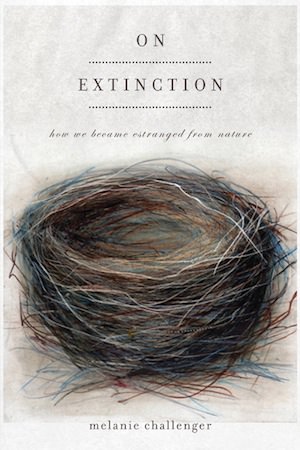
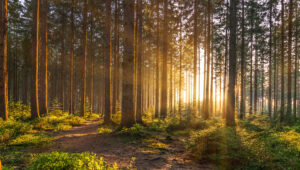

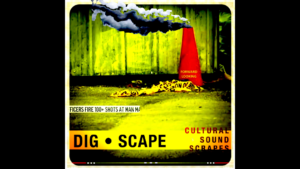
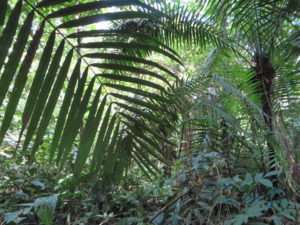

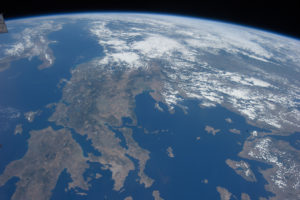
You need to be a supporter to comment.
There are currently no responses to this article.
Be the first to respond.